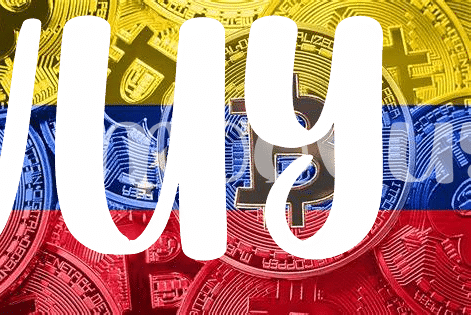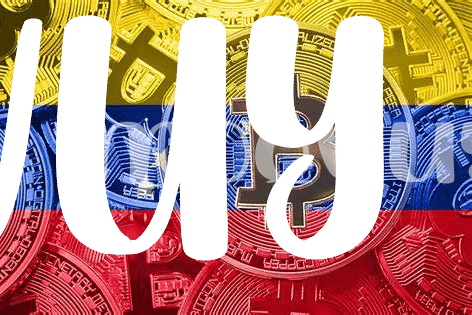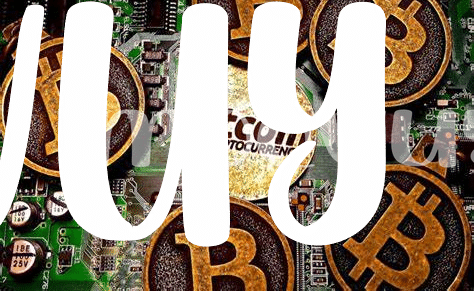Overview of Venezuela’s Fx Control Measures 🇻🇪

Venezuela’s foreign exchange (Fx) control measures have significantly impacted the country’s economy, leading to strict regulations on currency exchange and trade. These measures aim to stabilize the economy and manage the flow of foreign currency. However, they have also limited access to traditional financial services, pushing many Venezuelans towards alternative means of currency, such as Bitcoin. The Fx control measures have created a complex financial landscape in Venezuela, prompting individuals and businesses to explore decentralized digital currencies as a way to navigate the restrictions. As a result, Bitcoin has seen increased adoption within the country as a hedge against economic uncertainty and inflation.
Impact of Fx Control on Bitcoin Adoption 💸
Venezuela’s strict Fx Control Measures have significantly influenced the adoption and usage of Bitcoin within the country. With limited access to traditional currency exchanges and restrictions on foreign currency transactions, Venezuelans have increasingly turned to Bitcoin as an alternative financial tool. This shift has been driven by the decentralized nature of Bitcoin, providing a means for individuals to bypass government control over traditional financial systems.
The impact of Fx Control on Bitcoin adoption in Venezuela has been profound, leading to a surge in the use of cryptocurrencies as a way to preserve wealth and conduct transactions. Bitcoin has offered Venezuelans a level of financial freedom and autonomy that was previously unavailable under the country’s stringent foreign exchange regulations. Despite facing challenges such as regulatory uncertainty and potential government crackdowns, the demand for Bitcoin continues to grow as Venezuelans seek alternative avenues for financial stability and economic empowerment.
Rise of Bitcoin Usage in Venezuela 📈

The increasing use of Bitcoin in Venezuela has been driven by a combination of economic instability and the need for alternative financial solutions. With government restrictions on traditional currency exchanges, many Venezuelans have turned to digital assets like Bitcoin as a way to safeguard their wealth and conduct transactions. This shift towards Bitcoin adoption has not only provided a means of financial empowerment for individuals but has also facilitated cross-border transactions and access to a global financial network. As a result, many businesses and consumers in Venezuela are now leveraging the benefits of Bitcoin to navigate the challenges posed by the country’s economic volatility. The rise of Bitcoin as a viable payment method and store of value in Venezuela showcases the growing importance of decentralized financial technologies in addressing real-world economic constraints.
Challenges Faced by Bitcoin Users in Venezuela 🤔

Bitcoin users in Venezuela face a myriad of challenges due to the economic instability and hyperinflation plaguing the country. One prominent issue is the lack of reliable internet access in certain regions, hindering the seamless use of digital currencies for transactions. Additionally, the fluctuating value of Bitcoin itself poses a risk for users, as the price volatility can impact the purchasing power of their holdings. Moreover, the scarcity of resources such as electricity and hardware for mining activities further complicates the Bitcoin landscape in Venezuela. These obstacles make it challenging for individuals to fully embrace and benefit from the potential advantages that cryptocurrencies like Bitcoin offer amidst the economic turmoil.
To learn more about how foreign exchange controls affect Bitcoin users in other countries facing economic challenges, such as Yemen, check out this insightful article on foreign exchange controls affecting Bitcoin in Yemen.
Government Regulations and Bitcoin Transactions 🔒
Within the complex landscape of Venezuela’s financial regulations, Bitcoin transactions have emerged as a lifeline for many individuals seeking financial autonomy. Despite the government’s stringent control measures, Bitcoin provides a decentralized avenue for conducting transactions beyond the confines of traditional banking systems. This innovative approach to financial interactions not only challenges the existing norms but also opens up new possibilities for Venezuelans facing economic hardships. However, navigating the regulatory frameworks governing Bitcoin transactions requires vigilance and adaptability to ensure compliance and security. As the government continues to monitor and regulate these transactions, a delicate balance between innovation and regulation must be maintained to foster a sustainable and secure environment for Bitcoin users in Venezuela.
Future Outlook for Bitcoin in Venezuela 🚀

The future outlook for Bitcoin in Venezuela is filled with potential and challenges. As the country grapples with economic turmoil and foreign exchange controls, the utility and appeal of decentralized cryptocurrencies like Bitcoin continue to grow. Many Venezuelans are turning to Bitcoin as a means of storing value and conducting transactions in the face of hyperinflation and currency instability. However, the use of Bitcoin in Venezuela is not without obstacles, including regulatory uncertainties and government crackdowns on digital currencies. Despite these challenges, the future of Bitcoin in Venezuela holds promise, with potential for continued growth and innovation within the crypto ecosystem in the country.
foreign exchange controls affecting bitcoin in uzbekistan foreign exchange controls affecting bitcoin in uzbekistan.
